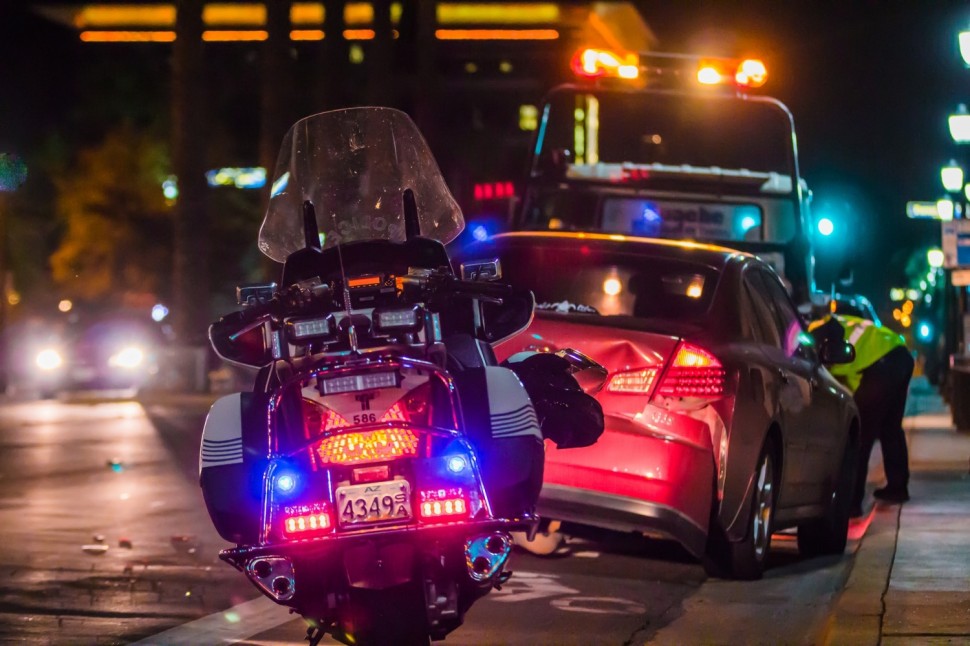
You've just been in a bad car accident. You're in a state of shock and perhaps even in pain, although right this second, it's impossible to know the extent of your injuries. You're just glad you're alive. For certain, one of the things that's farthest from your mind is the legalities involved. Like Foreignpolicyi.org states, you're more concerned with the injuries you may have sustained and also the damage to your vehicle. You will also be concerned about the health of the driver in the other vehicle and also the health of its occupants, should there be any. But what you also need to think about are the legal ramifications of the accident since you should be taking immediate steps to guarantee the best legal outcome for yourself, regardless of who is at fault.
According to Julian Lewis Sanders and Associates, LLC, an Atlanta car accident lawyer, every day the county's major interstates and roads are swamped with vehicular traffic. With lots of people on the roads at all hours of the day, many of them distracted by their cell phones, accidents happen all too frequently, a large portion of them resulting in severe injury and death. Most accidents occur when a driver makes a bad decision, the legal term for which is negligence. A negligent driver, combined with a vehicle's size and speed can spell disaster and result in an innocent person or persons getting badly hurt.
If you've been in a car accident, here is a list of the things you should do while still at the scene for both your legal and physical welfare:
Shut Off Your Vehicle Engine
If your vehicle can still operate, get it out of the roadway by pulling onto the soft shoulder. Make sure to pull far enough off the road so you are not in danger of being hit by any oncoming traffic. Come to a complete stop and then shut down the engine.
Do an Injury Check
Once you've parked safely on the side of the road and your engine is turned off, you need to check your body for injuries. The shock and accompanying adrenaline rush caused by the accident will more than likely hide some or even all of your pain. That's why it's imperative you not only perform a physical injury check on your body, but a visual one also. If you have passengers in the vehicle, your need to perform a check on them once you've checked yourself. They too might not be aware of the extent of their injuries due to shock.
Call 911
If you don't have passengers or the passenger(s) you've been driving appear to be physically fine, at least upon initial examination, you need to carefully get out of your vehicle. Go to the other vehicle or vehicles involved in the accident to see if anyone is badly hurt. If it turns out someone is hurt badly, you need to call 911 immediately. Follow the instructions of the 911 operator.
Call the Police
At this point, if you've already called 911, then the local police and/or State Troopers will have been notified and are already on their way. In some rural areas, the county sheriff may have been alerted. However, if you've seen no reason to alert 911 due to lack of injuries by anyone involved in the accident, then you should call the general phone number for the local authorities and carefully explain the situation.
Attempt to Communicate with the Other Driver or Drivers Involved
This can be the tricky part of an accident since emotions will be running high along with the adrenaline running through your systems. However, it's necessary to exchange crucial information with the other driver in order to file insurance claims, and to have an understanding of vehicular repair costs and medical costs, if any. Never admit accident fault. In fact, try and avoid discussing the details of the accident and how it might have happened in general. Like the old legal saying goes, "Anything you say can be used against you in a court of law."
Collect Information from the Accident Scene
If possible, take photos of the scene with your smartphone. Also note weather conditions, and any details about the cars involved along with how the accident happened. If road signs are hidden or missing, or a traffic light is malfunctioning, the city and/or county could be at fault. The more information you collect, the easier it will be for your lawyer to build a case on your behalf.
After Filing the Police Report
Once the police report is filled out and filed, you will be able to leave the accident scene. This is when you must do three things. First, you should seek out medical attention since the affects of some injuries such as head trauma don't show up until days later. You also need to speak to your insurance agent regarding the condition of your vehicle. Finally, you need to speak with a lawyer who specializes in car accidents. In the final analysis, you need to protect yourself physically and legally.




